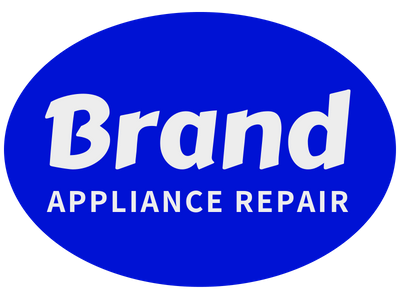Need Help?
- Is repairing or servicing an old appliance really a good investment?
When asking "How much is a new one?" you need to consider both the quality of appliance you can afford as a replacement and the option of having your existing appliance properly repaired by a competent professional. We can diagnose and evaluate your appliance to determine if it's in your best interest to repair or replace it and make a recommendation accordingly. Also, another cost associated with buying a new appliance is the "aggra-dollars." That is, the aggravation and time spent that goes along with shopping for a new appliance: having it delivered, getting it installed and disposing of your old one. If you've experienced this joy recently, you'll realize that the aggra-dollar factor can be costly.
- Should I repair or replace my malfunctioning appliance?
Generally older appliances are more durable and long-lasting than the newer products being made today. Modern models have wonderful features, but they do need more maintenance and repair than their older counterparts. It's wise to get an estimate for repair before replacing. The general rule to follow is for the repair not to exceed 35% of the total replacement cost. The replacement cost includes; product, tax, delivery, and extraction of old appliance.
- What services does Brand Appliance Repair offer?
We offer the following services:
Refrigerator Repair
Washer & Dryer Repair
Stove, Range & Oven Repair
HVAC Repair
- How many appliances has Brand Appliance repaired?
We have repaired over 300 appliances, including, refrigerators, washers, dryers, stoves, ranges, ovens, and air conditionings.
- Which cities do you serve?
This is a sample. This is a sample. This is a sample. This is a sample. This is a sample. This is a sample.
- How many years of experience do you have?
We have had 10 years of appliance repair.
- The spring broke on my oven door. Do I have to get it repaired right away?
Don't ignore broken oven doors. Ovens are not furnaces and are not connected to a chimney to vent dangerous combustion gases outside. A broken door will not allow the oven thermostat to acclimate or shut off, so carbon monoxide continues to be produced from the continued combustion. A broken door seems minor, but it's potentially deadly.
- Is it really important to clean the condenser on my refrigerator?
Absolutely. Virtually all manufacturers recommend it be done once a year or more as noted in the owner's Care and Use Manual. It saves electricity, minimizes bio concerns, and ultimately helps extend the life and productivity of the refrigerator. We have a regularly scheduled service program for our customers to enroll in because it's that important.
- Why do my clothes take so much longer to dry than they used to?
Many times the problem is as simple as having the dryer vent cleaned properly and professionally. As well as being inconvenient, this build-up of lint is a potential fire hazard, and should not be taken lightly. Alternatively, there could potentially be a malfunction inside the dryer that is preventing the proper heat from being attained so the dryer should be inspected.
- My range keeps making a clicking sound even when I'm not using it. What should I do?
Immediately, unplug the appliance or turn off the power source at the fuse or circuit breaker. Then call for service. This's typically an electrical issue and if there's a possible spill, it's even more dangerous. Please call our professional for help.
- What are the best temperature settings for my refrigerator and freezer?
For maximum energy efficiency, keep your refrigerator between 36 degrees and 38 degrees Fahrenheit. Your freezer should be between 0 and 5 degrees Fahrenheit. If temperatures are kept 10 degrees lower than recommended, energy use can increase by as much as 25 percent.
- Are there recommended cleaning methods for cleaning my appliances?
Manufacturers and home repair and service professionals recommend the following practical tips to maintain and operate built-in appliances.
Oven/Range/Cook-top - Clean the burners by hand, not in the dishwasher. Don't line the oven with aluminum foil, which may damage the oven's finish or result in improperly cooked foods. Never block the vents of a gas oven or range. Good ventilation is necessary in order to keep combustion levels operating properly. Clean the hood and grease filters every three months to provide proper ventilation and help prevent grease fires.
Garbage Disposal - Always run cold water and be sure to let water run until the disposal has shut off. Avoid overfilling the disposal with waste, and avoid putting onion skins, corn husks or other fibrous food into it. Check for a potentially faulty condition if: (a) bottom of a unit shows signs of rust (b) you see signs of water leaking under the sink (c) the circuit breaker trips continuously.
Dishwasher - Run the dishwasher at least once a week to prevent seals from drying out and causing leaks. Check for signs of a potentially faulty condition, including: (a) rush on rack seams and tub bottom (b) the door doesn't close properly (c) discoloration on the floor near dishwasher.
